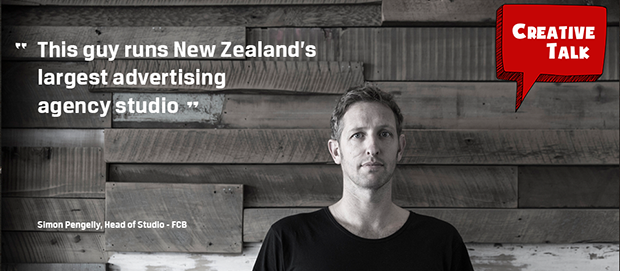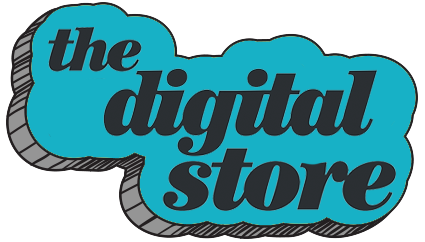Creative Talk with Simon Pengelly - Head of Studio - FCB
 Simon Pengelly has the incredible task of running the largest New Zealand agency studio. We ask Simon how he manages to stay calm and in control, even when the heat is on.
Simon Pengelly has the incredible task of running the largest New Zealand agency studio. We ask Simon how he manages to stay calm and in control, even when the heat is on.
You don’t come from a hands on mac op background, which is traditional for a Studio Manager / Director, how did you make the transition to this role?
I come from an operational and production background, but studied and have a diploma in graphic design, so basically it’s a bit of a combination of both.
As the intro mentions, you have a rather large job, how do you stay in control?
I am lucky to be surrounded by really great and talented people, not only in my department but throughout the agency. Knowing I have these people to call on definitely helps and it also gives me the confidence that we will not only get the job done, but to get it done really well. And I always try to retain some sort of perspective and remind myself that we aren’t saving lives.
You have seen FCB grow since you started 6 years ago, it must be rewarding seeing the agency flourish, and the systems you have implemented working well?
Yeah, it’s definitely satisfying. But it’s also still a work in progress. Systems and processes that work now, won’t necessarily work in a few months time. So rather than sitting back and think everything’s working well, we are continuously asking ourselves how can we do things better.
Many people would look at your role and think ‘daunting’, break it down for us.
There are basically two sides to my role. Firstly, there’s the operational side, which involves managing the workload and making sure the jobs are getting through studio, looking at how we can improve and develop new process and systems and make things more accurate and more efficient. And then there’s people side, managing the team, their development and performance. I find that if you manage the people well and ensure they are happy and motivated, it makes it much easier to manage the work well.
What are the highlights of your role?
Pitch wins are always very satisfying because of the huge amount of work that goes in to them by people across the whole agency. But the real highlights for me are the day to day conversations and interaction with the people, rather than the actual work.
And the lowlights?
Lowlights? What are they? Ha!
What is your most memorable campaign (for whatever reason)?
Hmm, that’s tough. I have a terrible memory so let’s say the big ones we are working on at the moment…
Is your role integrated with digital – a combined studio?
Yes, it is now. While we have two separate studio and digital departments, we have just recently brought in a lot of the less complex digital work to the studio that was previously being done in the Digital department. We can apply some of the processes we have in the print studio to this type of digital work and gain efficiencies. And it’s also a great opportunity for the print guys to up-skill, learn more about and embrace the digital world.
Do you find that traditional agency studio roles – mac ops and designers are changing and agencies are expecting them to cover more than the usual Creative Suite skills – i.e. digital and motion?
It’s certainly something I see with the freelancers I use. Especially bridging the digital v print gap. They are now able to work in both print and digital departments. I guess it’s a necessity in order for them to pick up as much work as possible. And I think that’s probably the case in the industry as a whole. We are definitely trying to blur the lines between the traditional print and digital designers.
When you are hiring someone, what are the three top qualities you look for?
Attitude, personality, initiative. While there is obviously a requirement for skills and knowledge of their particular field, I would much prefer to hire someone with a great attitude who will work well and fit in with the team rather than someone who has amazing skills but is a bit of a dick. It’s easier to teach people skills than attitude.
What heads up would you give to graduates or mac op / designers who would like to work in an agency?
It’s tough and it’s probably not quite what you have imagined. There are some long days and longer nights. And be willing to start the bottom. You probably won’t be working on anything particularly glamorous, let alone anything that even remotely resembles the briefs you worked on in design school, but if you get yourself into a good agency, the people make it all worthwhile.
Top quality studio moment?
Yet to happen.
